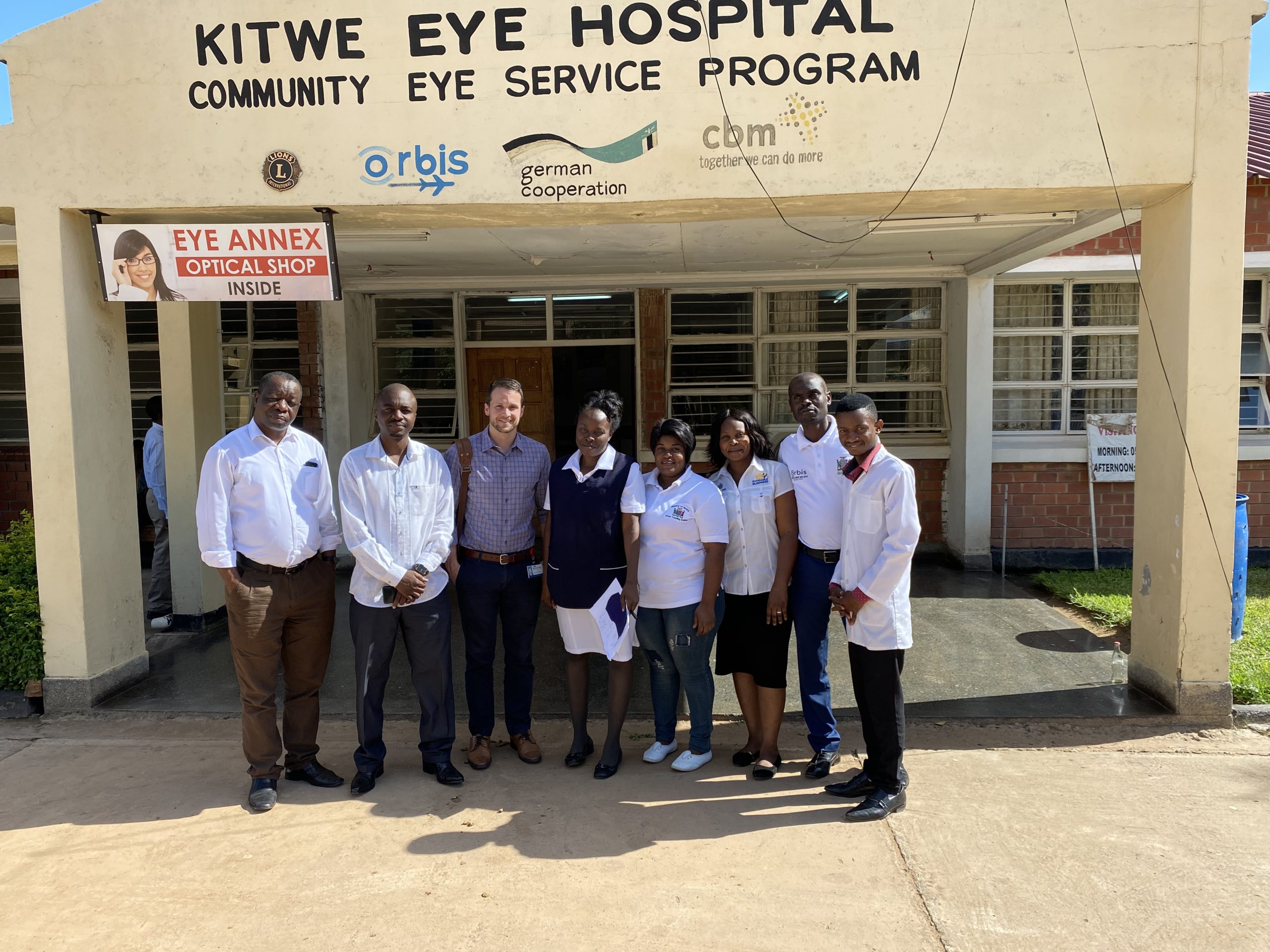Wills Eye Global Fellow’s mission to Zambia and Nigeria
By John Anhalt MD

Kitwe, Zambia - December, 2019

This week, I travelled to Kitwe, Zambia to work with our partners at the Kitwe Eye Hospital. Situated in the “Copper-Belt” to the north of country, this community of approximately 1 million people are economically tied to the copper mining industry. The Kitwe Eye Hospital is one of three institutions in the country responsible for the training of Zambia’s next generation of ophthalmologists. For one week, we have been conducting a study examining long-term postoperative outcomes for cataract surgery. Working closely with the Aravind Eye Care System, this study will be reproduced by partner sites across Africa to function largely as a quality improvement project by providing data on patient outcomes 2-3 months following surgery. It will also allow us to identify obstacles in patient post-operative care.
One of the obstacles that was immediate apparent was the difficulty in contacting participants and coordinating their arrival to the clinic. Phone numbers frequently change, lines are dropped, and patients may not regularly have access to transportation or the ability to cover its costs. It is reflective of the obstacles in general that patients encounter in accessing healthcare. After a week of examining patients and getting their feedback on their post-operative experience, we have enough data to move on to the analysis. This step will largely be performed by our colleagues at Aravind. As for me, I’m off to Nigeria to conduct the same study at the Eye Foundation Hospital in Ijebu.
Ijebu, Nigeria - December, 2019
After 26 hours of travelling (Zambia to Nigeria is apparently not a commonly taken route), I arrive at the Lagos airport. One of the largest and most densely populated cities in Africa, the airport is, similarly, densely crowded and always with a healthy dose of chaos. I am relieved to see a man outside the arrival’s hall holding a white placard with “Dr. Anhalt”: my lifeline out of the airport. It’s another 2-hour drive to Ijebu while I get to witness the famous Lagos traffic.
As soon as I arrive to Eye Foundation Hospital, I am immediately embraced by the endless hospitality of the hospital staff. I am greeted by Drs. Olowo, Maji and Tayo who will become my closest colleagues over the course the week. The next day we run a pilot study and again we immediately note the obstacles in conducting this sort of study. Despite offering financial compensation for the participant’s time and travel, we frequently met logistical limitations regarding participant recruitment. It’s more than just travel money. Since cataract patients are usually elderly and often with other ailments, other members of the household need to be available to escort and assist with their postoperative care. That equates to an additional day that the son has to miss work or that the granddaughter has to skip school. The hidden costs add up. Again, a manifestation of the barriers people these communities have to accessing healthcare.
Similarly to what was done in Zambia, by the end of the week we have successfully collected enough data to start the data analysis. These past two weeks have been an incredible experience. With new partnerships forged in Zambia and Nigeria, I look forward to seeing how these relationships can grow. As for the study, the difficulties - and even frustrations – encountered during the its implementation has given me a deeper appreciation for the obstacles that these indefatigably dedicated eyecare providers encounter every day. After farewells and plenty of photographs, it is with a heavy heart that I now leave Nigeria.




